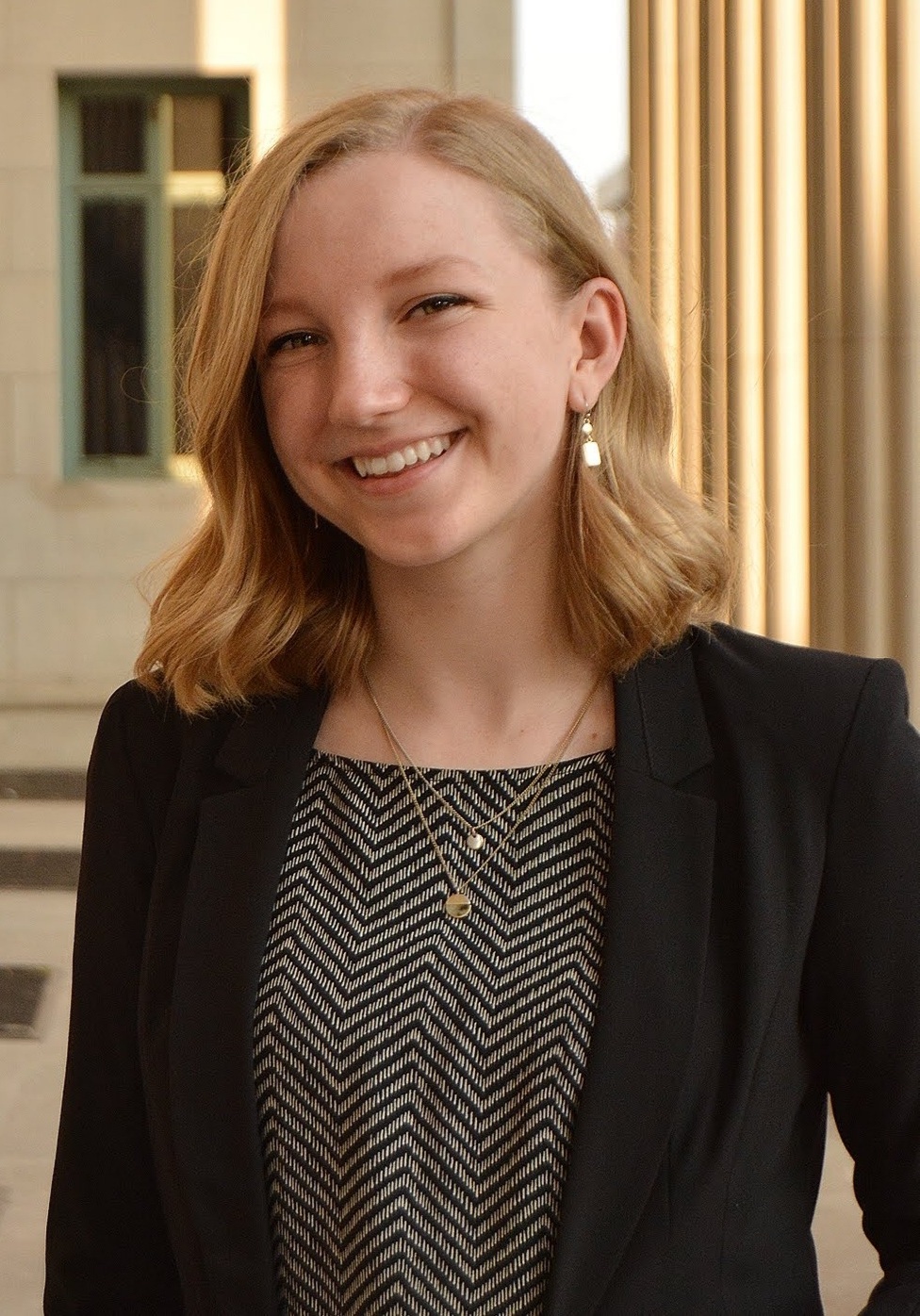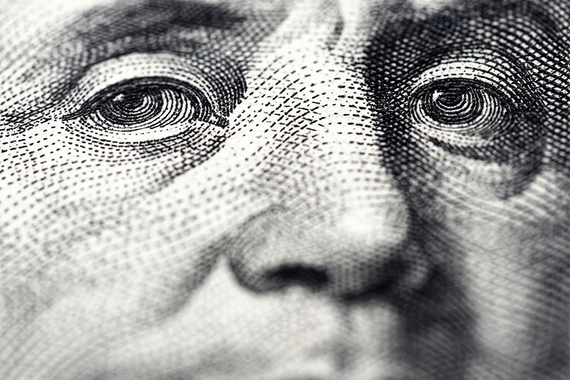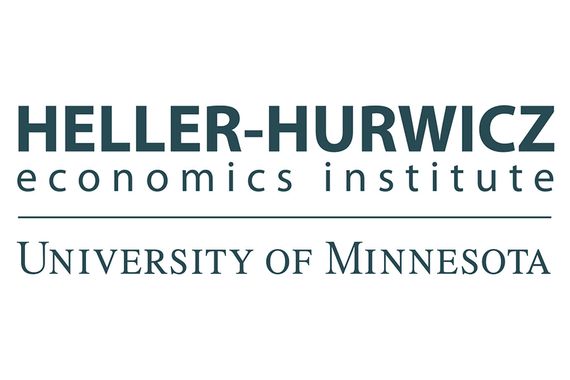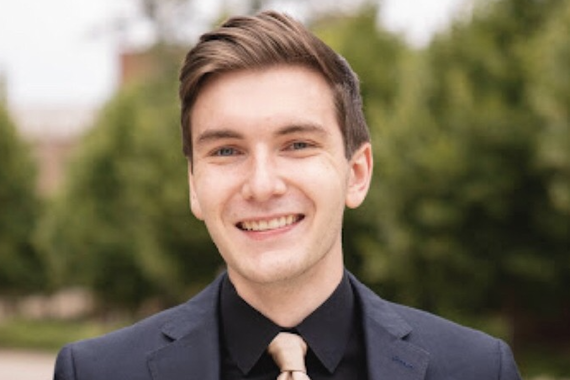A Journey from Undergraduate to Federal Reserve Employee
In this interview, Haley Chinander (BA ‘21) reflects on her time at the U of M and shares some advice for students. While a student double-majoring in economics and political science, Chinander worked as an intern at the Minneapolis Fed.

Finding a Path at the U: Why choose to be an economics major?
“As a freshman at the University of Minnesota, I knew I wanted to major in political science because of my interest in learning about public policy, but I did not have an actual career path in mind at that time.”
“After I took an intro to microeconomics class my first semester, I realized that an additional major in economics would provide me with a whole new set of skills and teach me a different way of thinking that would pair perfectly with my interests in public policy. The beauty of an economics degree is that it is what you make of it. If you’re not sure if you want to work in the private sector, for the government, or for an academic institution after you graduate, being an economics major prepares you with the skills necessary to be qualified for a variety of careers. You can learn how to answer complex questions about the world, analyze and interpret data, and even gain coding skills through certain classes.
"All these skills can be useful in a number of professions, so economics appealed to me during my freshman year when I was still unsure of what my interests were and what I was truly passionate about.”
Highlights: What is your favorite memory from the U of M?
“One of the most impactful memories was from my freshman year macroeconomics class with Professor Fahima Aziz. Professor Aziz decided to bring us on a field trip to the Federal Reserve Bank of Minneapolis after we learned the basics of monetary policy in class.
"I was unaware that there was a regional Federal Reserve bank in Minneapolis at the time. Through this tour, I learned about the history of the Federal Reserve and was introduced to the wide variety of topics the Minneapolis Fed focuses on such as housing, child-care, and education. Learning about these research initiatives at the Minneapolis Fed inspired me to apply to their internship program the following year.”
“Through this internship program, I ended up spending two years as a Government Relations intern before entering my full-time role as a research assistant in regional outreach after graduation. If Professor Aziz had not brought our class on this tour, my career path would likely look very different right now.”
If I were you…… What advice would you give to students looking to explore the major?
“Because there are a lot of different career paths that can result from a degree in economics, I would encourage students who are interested in the major to start reaching out to alumni from the economics department for informational interviews.”
“When I was on the fence about my career interests, I started speaking to those with economics degrees who were in a number of different fields. I spoke with alumni who were currently in the economics graduate program, employees at the Department of the Treasury, graduate students in public policy school, and researchers at think tanks like the Brookings Institute. Speaking with these economics majors and being able to ask them questions about their experiences and career path helped me gain a better understanding of what opportunities were available for economics students after graduating.”
Make the most of your time: What classroom experiences were the most rewarding?
"Writing my thesis for the honors program was probably one of the most challenging and most rewarding experiences of my undergraduate years. Although I wrote my thesis for my political science degree, I chose to write my thesis on the politics of financial crises in the United States which combined my interests in politics and in economics.
"Conducting my own research on a topic I was personally passionate about, under the supervision of my incredible faculty advisor Professor Jane Sumner, required me to manage my own time, work within a framework I created, and problem solve in ways I hadn’t had to for other class papers. Although it was stressful and I wasn’t very happy with how my thesis turned out, submitting all 60 pages of work that I did while living through a pandemic was extremely fulfilling and it was the perfect way to end my college career.
"To my surprise, my thesis was awarded the William Jennings Bryan Prize for best undergraduate paper in political science this summer which was the cherry on top of an already amazing experience."
While a student at the U of M, what out-of-classroom experiences benefited you the most?
“Although I’ve had a variety of out-of-class experiences that were more directly aligned with my career interests, my most valuable out-of-class experiences came from my job as a student fundraiser at the University of Minnesota Foundation. I took this job out of necessity to pay for my living expenses on campus, but through this job, I learned to become comfortable asking for donations over the phone, building rapport, and connecting with complete strangers.
“These skills I gained as a student fundraiser were directly applicable to my time working on political campaigns where I had to call to raise money for the candidate or connect with voters through door knocking. My call center experience was also one of the main reasons my original manager at the Minneapolis Fed wanted to hire me as an intern because she knew I would be comfortable making phone calls. I have since used my call center experience while interning in a Congressional office and in my current role as a research assistant where I need to call local sources to gain anecdotal knowledge on the regional economy.”


